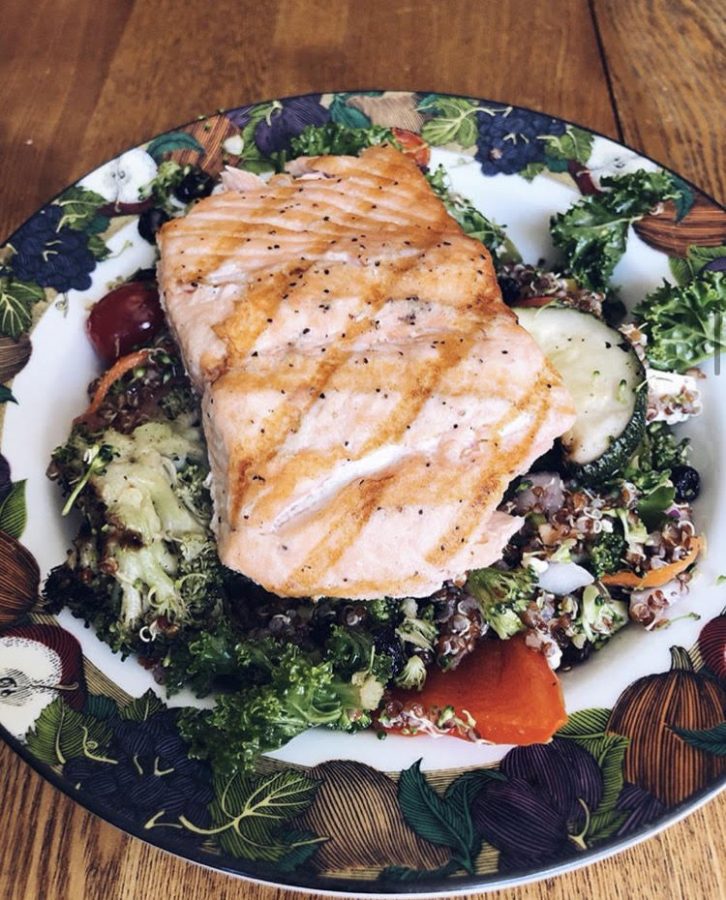Your dinner’s effect on the environment
A meat-free alternative: Salad with salmon, kale, quinoa, and veggies
September 29, 2019
Eating food – a seemingly simple part of everyday life – actually has more of an impact on the environment than you may think. The production of meat, specifically beef and lamb, has been proven to contribute significantly to the decline of the state of the environment.
According to Canada-based environmental non-profit organization The David Suzuki Foundation, livestock production is responsible for 18 percent of greenhouse gases such as methane and nitrous oxide.
Chemical agriculture, such as synthetic hormones and fertilizers, also poses a huge problem due to the fact that they are often made from fossil fuels. But how exactly are animals such as cows and sheep hurting the environment?
When land is cleared to make room for farms and livestock, large stores of carbon are released into the atmosphere, which heats up the planet, according to The New York Times. Fossil fuels are also used to process and ship products, and to operate farm machinery.
All food production has an impact on the Earth, but meat specifically has the biggest ill effect. It also doesn’t help that across the globe the demand for meat is increasing by almost 2 percent per year, according to the Environmental Defense Fund. This increase does not appear to be slowing anytime soon, so it is important that we look for more efficient and environmentally-friendly ways to produce and consume food.
So how can the average person help? I’m not telling you to go vegan or to cut out meat entirely. Just being conscious of what you’re eating and how it affects the Earth will help. Although many people are doubtful, it is true that one person’s choices can have an impact on the problem as a whole.
Nazareth students have already found ways to do their part. Senior Luke Baumel says, “My family and I eat gluten-free and organic as much as we can. Although we haven’t found scientific proof, we feel better when we eat this way.”
In addition, Sophomore Natalie Rozmus explains her vegetarianism by stating, “I know that any attempt to reduce the amount of meat I am eating will help.”
Other simple ways to help include participating in Meatless Mondays, which is a campaign to encourage people to have one meat free day a week. Eating organic whenever possible is always better for yourself and the environment.
So, the next time you’re reaching for that hamburger, maybe opt for a sustainable seafood or plant-based substitute instead. The world may be better for it.

